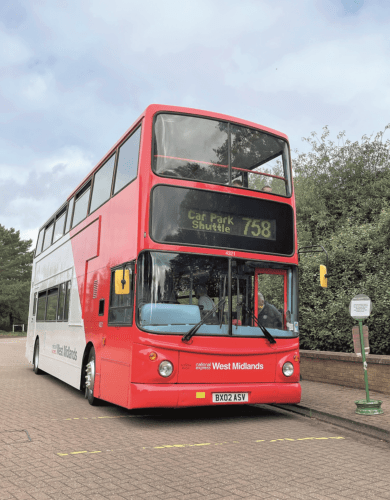
fleet. TMW
Museums don’t just have to be about half-cabs and obsolete marques, reports Nick Larkin
A major transport museum says its policy of embracing more modern buses as well as traditional classics has delivered major benefits. Transport Museum Wythall (TMW) held an event celebrating 25 years since the first low-floor, easy access double-deckers entered revenue earning service.
‘Step Free 25’ took place as part of the museum’s August Bank Holiday Gathering and included the debut of 2002 Alexander ALX 400-bodied Dennis Trident BX02 ASV following mechanical refurbishment, re-panelling and repainting. Also on display was R1 NEG, museum’s 1997 Optare Spectra, new to Travel West Midlands, fleet number 4110 and one of the first low-floor buses to enter service in Britain. Both vehicles were donated to the museum by National Express West Midlands.
TMW’s collection also includes 1998 Wright Crusader-bodied Volvo B6LE R598 YON. Overall, the museum is home to 90 historic coaches and buses. Museum spokesman Denis Chick said that the low-floor acquistions had delivered major benefits in attracting younger members to the museum: “TMW is regularly asked by members and visitors why the museum acquires and displays ‘new’ buses – after all, the Tridents are (just about) still in service. Surely it’s a home for old vehicles, not these modern boxes?
[…]By subscribing you will benefit from:
- Operator & Supplier Profiles
- Face-to-Face Interviews
- Lastest News
- Test Drives and Reviews
- Legal Updates
- Route Focus
- Industry Insider Opinions
- Passenger Perspective
- Vehicle Launches
- and much more!


